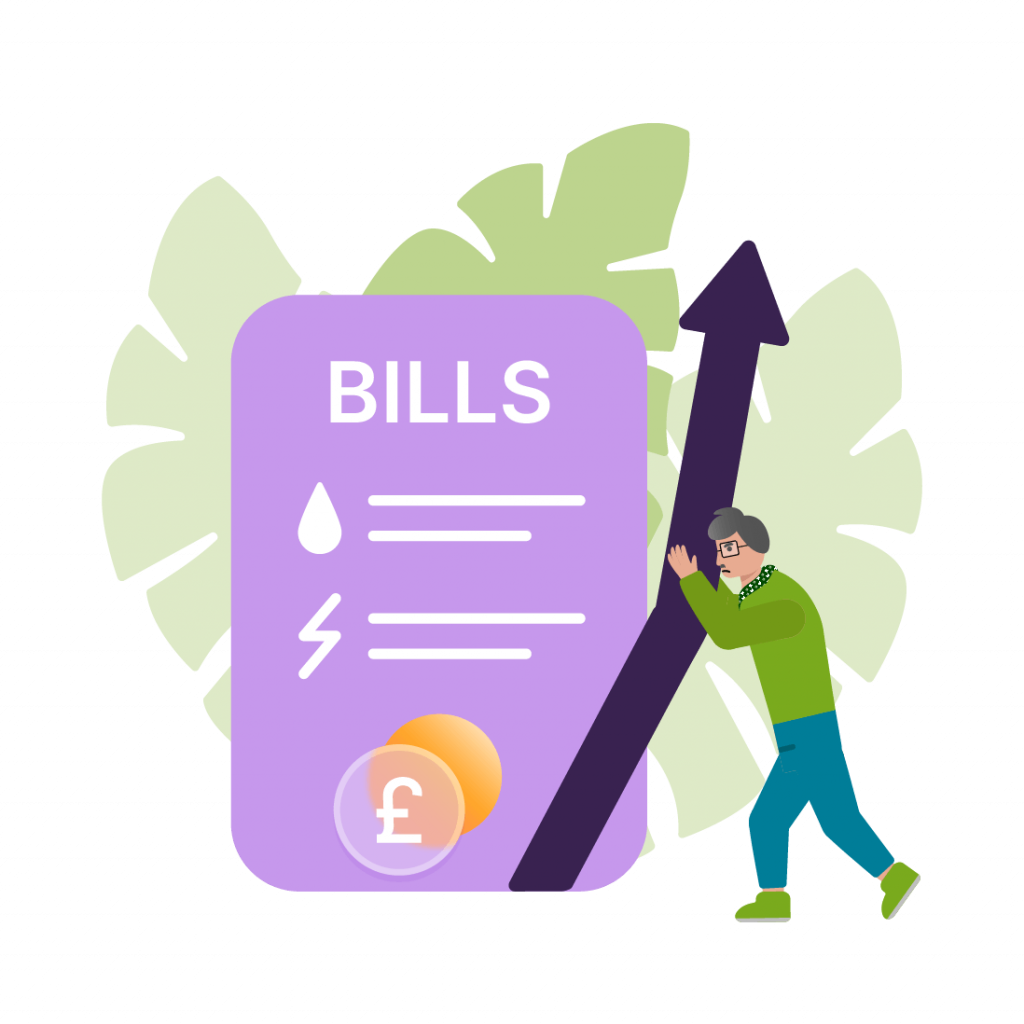5 Things the Tinder Swindler Taught Us About Debt
The Tinder Swindler taught us that anyone can be at risk of being scammed into debts they can’t afford to pay back. So how can we stop that from happening to us?
**WARNING: Spoilers throughout!**
It’s every woman’s worst nightmare. He’s not just a liar, he’s not just a cheater but he also scams you out of £100,000s. Shimon Hayut, AKA Simon Leviev, scammed women out of an estimated $10 million by promising them the world, throwing money at them, and indulging them in a lavish lifestyle. You might think you’d never get fooled, but with UK scams rocketing by 33% during the last 2 years you can never say never…
Shimon Leviev got away with stealing millions and is now back on the streets again. However, his scandalous actions have taught us many lessons about how to handle our finances.
Let us break some of them down for you…
01. Beware of scammers
– they don’t always just send you a dodgy text, and anyone can become a victim!
An important lesson we learn from The Tinder Swindler is that not every scam is blatantly obvious. Today scammers are a lot more sophisticated and tactical in their approach.
In the latest Netflix documentary that’s taking the world by storm, we hear the story of con artist, Shimon Leviev, a man who claims to be the heir of LLD Diamonds – and a billionaire. He meets women using Tinder, makes them fall in love with him, and ultimately scams them into taking out large debts for him. He tells them he wants to start a family with them, have a home with them, have a life with them...
He tells Cecilie Schrøder Fjellhøy – one of his victims – that she has a budget of $15,000 per month for an apartment. He offers up a lavish and indulgent lifestyle that’s almost impossible to pass up.
The point is that Leviev was so clever and charismatic, making his con hard to spot before it was too late.
He conned some highly intelligent women, which tells us that really anyone can be scammed if it is done with such planning and cunning execution. Therefore, everyone should be cautious when it comes to giving out personal and financial information, whether it is to a stranger over the phone, or someone you believe you can trust. The only time you should be giving out financial information is if it is asked for from an authorised company.
Have you been scammed? If you are worried that you may have been frauded you can get advice on what to do if you have been scammed from your bank or Citizens Advice.
The bank will investigate your claim and most likely freeze your account in the meantime, to ensure you are not at any further risk. The bank will contact the police regarding the scam, but feel free to ask your bank for the crime number so that you have full documentation of the case.
02. Be cautious of quick payday loans
In the documentary, we quickly learn Leviev has been scamming women into taking out loans on his behalf. He asks them for the money stating that he needs it to get away from his “enemies” or close a business deal after having his cards cut off, but in reality, he was using this money to fund a false life.
One of the women who feature in the documentary, Cecilie Schrøder Fjellhøy, takes out numerous personal loans for the man she believes loves her unconditionally. Other women in the documentary also take out loans. Ultimately, this left the victims of Leviev struggling to repay large sums with extortionate interest fees. This eventually led them into a debt cycle – where it became exceptionally hard to repay creditors because of how quickly the debt level was increasing.
“These kinds of loans – the interest is so high, that they will just eat me alive.” – The Tinder Swindler, Netflix, 2022.
You see, short-term loans, like those the women were taking out, often charge the maximum APR, making it extremely difficult to pay them back.
The key point to take away? Try to avoid quick payday loans if you can.
03. Avoid taking out a lot of credit at once
In The Tinder Swindler, Cecilie Schrøder Fjellhøy admits to the audience that at one point she owed a total of $250,000 to 9 creditors.
As a result of taking out multiple credit agreements in a short space of time, Cecile was overwhelmed with messages, emails, and calls from various creditors. This, on top of trying to juggle multiple repayment dates and amounts, made it difficult for her to have a positive outlook on her life.
If you’re dealing with multiple debts from multiple lenders, like Cecilie, you might want to consider a debt consolidation loan for bad credit. This type of loan combines your existing debts, so you’re making just one affordable monthly payment! All in all, they make your finances much easier to manage and allow you to get multiple creditors off your case.
Consolidate Your Debts04. Being in debt can be emotionally draining and damaging
It is profoundly highlighted in the documentary that being in debt can really change your outlook on life and negatively affect your mental health.
In the hit Netflix show, we hear numerous tales on how stressed and emotionally damaged the victims were as a result of having their finances in such a state. One story that is shared with the audience is perhaps most eye-opening to the effects being in debt can have on a person’s wellbeing.
Cecilie Schrøder Fjellhøy vividly explains to the audience that she checked herself into a psychiatric facility after contemplating committing suicide. The story is hard to hear, but it certainly shows how hard dealing with debt can be.
Dealing with existing debts can be isolating, worrying, and tiring. If you’re worried that your finances are affecting your mental health it is extremely important to speak to someone about your feelings and your situation.
A good place to start is to either seek professional advice or talk to your family about your debt.
05. If you want to pay off your debt, only you can make it happen
After being scammed out of thousands, all 3 of The Tinder Swindler victims decided to tackle their debts head-on, whether it be from their banks, the police, or debt advice experts.
Once again, this highlights to us that there is no need to try and sort your debt situation alone. There are a lot of services out there that can help make your journey towards better finances much simpler.
For example, if you were to choose to get debt help from Consolidation Express, you would receive honest expert advice from a company with over 15 years of experience. This would help you to make informed decisions about your financial future and provide you peace of mind that your best interests are always being accounted for.
However, it is up to you to ask for support. The decision to do so lies with you.
Additionally, we also learn in the documentary that it’s not always the best option to sit around and just wait for things to get better on their own. Ayleen, for example, took matters into her own hands in order to repay some of her debt off at a faster rate – she conned the con artist, stole his clothes, and sold them to make some further repayments to her creditors.
“I’m on operation sell, sell, sell” – The Tinder Swindler, Netflix, 2022.
Although we cannot condone stealing from people, the initial concept of trying your best to make payments is something we love the idea of! There are plenty of things you can do alongside getting professional help that could improve your financial situation:
- Sell your unwanted items online.
- Get a part-time job to boost your income.
- Cancel some subscriptions that you don’t use much.
- Walk as many places as you can.
- Use your talents to create something that you could sell.
The list is endless! But again, the decision to do these things lies with you…

Our concluding advice from watching The Tinder Swindler:
Be careful with your heart but be even more careful with your money.
Get Debt Help Today
By: Leah Cusick

Representative Example: Borrowing £7,500 over 60 months, repaying £167.57 per month, total repayable £10,054.20.
Total cost of credit £2,554.20.
Interest rate 12.9% (variable).
The lenders on our panel offer loans for 12-120 months, with rates from 4.4% APR to 49.9% APR.


